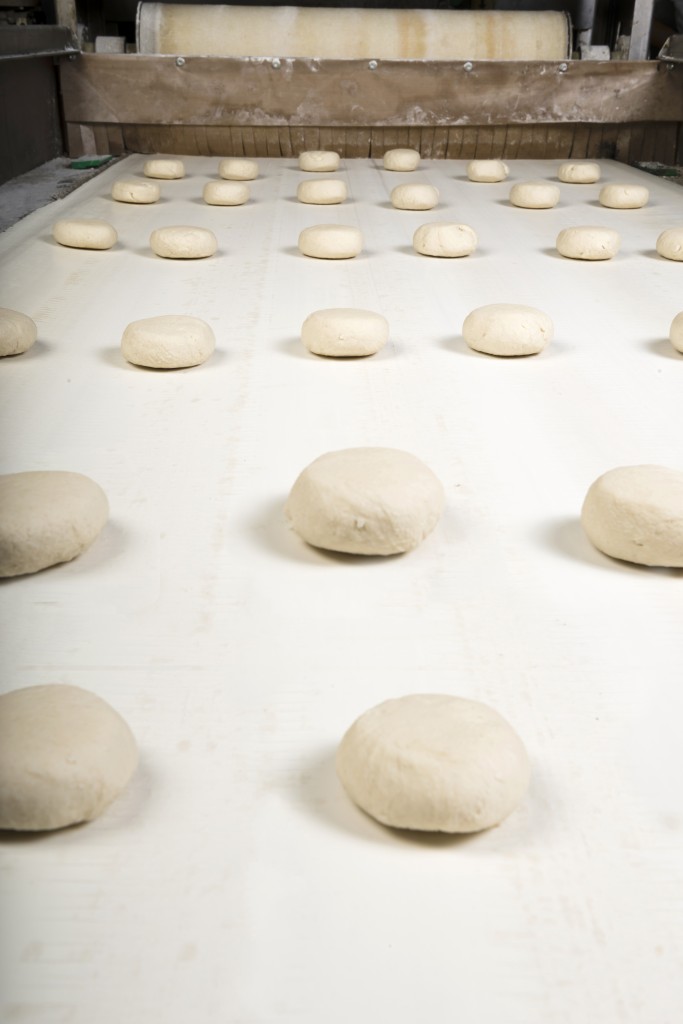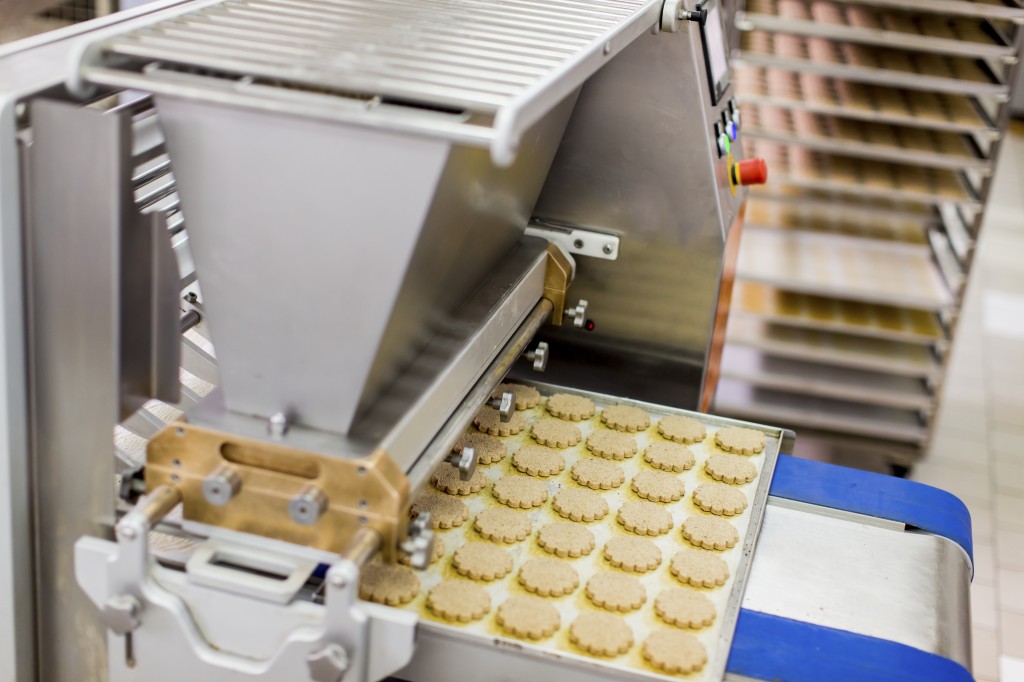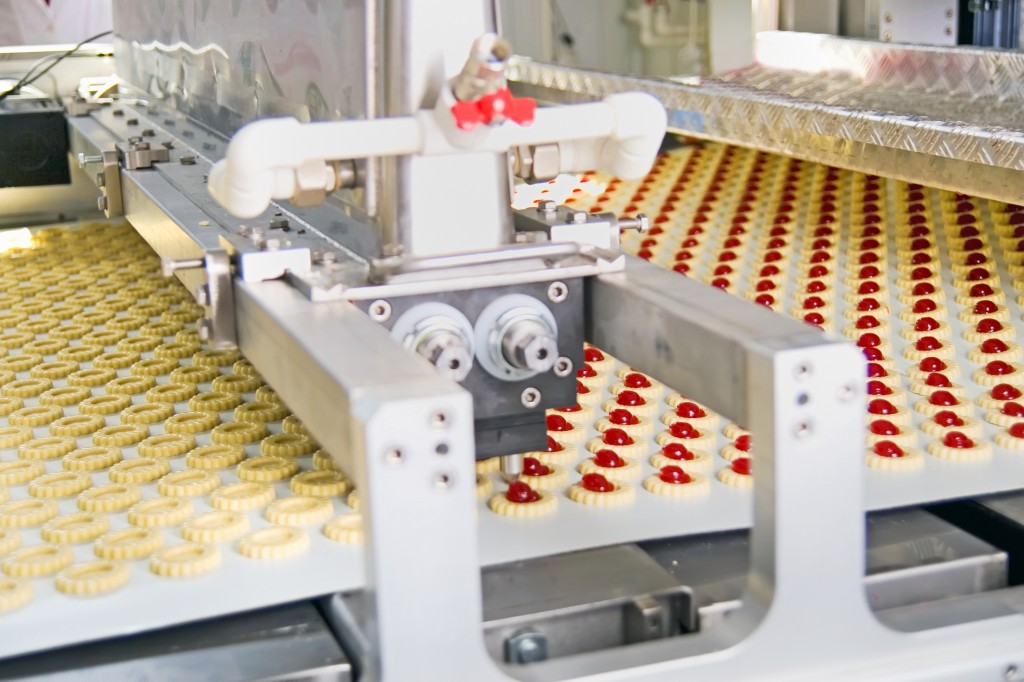How can robotics help in bakery production?
Modern day bakers need to combine their traditional craft skills with state-of-the-art automation technologies if they are to thrive in their ultra-competitive markets. Many of the individual processes – mixing, kneading, flouring and seeding, scoring – along with product and material handling requirements lend themselves to automation, while other duties may be effectively undertaken by industrial robots.

Robots in manufacturing
Robots have been valuable assets in the manufacturing and assembly industries, such as automotive production, for many years. They are used in a variety of tasks including welding, spraying, parts’ transfer and heavy lifting. More recently, robots have spread into a wider range of industries, where their flexibility, reprogrammability and consistency of function have allowed the automation of many tasks. Because they are usually used under an advanced form of computer control, they are able to adapt ‘on the fly’ to say, slightly non-uniform products, variable target positions, differences in colouration, etc. in a manner that mimics the intelligence of a skilled human operator.

Robotics in bakeries
The installation of robots in bakeries, whether smaller craft operations or high throughput industrial units, may be worthwhile to increase system flexibility and availability. For instance, if a range of products is baked, manufactured, packed or manipulated on one line, traditional automation solutions may be insufficiently flexible to allow timely product changeovers. However, robots can hold the requirements for a great many different products in their computer memories and be switched from one to the next at the push of a button.
The result of this compared to more traditional manual or semi-automated methods of production means production cycles can be designed to be substantially faster and more cost-efficient; quality and consistency can be assured and hygiene never compromised. Robots are usually found to be compact solutions, a very useful characteristic in many bakeries where space is often at a premium. They are often controlled by a camera system or ‘computer vision’, which seems naturalistic and easily understandable to operatives who have to work with robots.

How Roberts help in bakeries
Robots can be ideal, for instance, in pick-and-place applications, such as placing delicate iced buns into the pockets of plastic trays prior to wrapping in the final consumer packaging. As an example, in one biscuit production line in the US, daily production was increased from 12 to 20 tonnes of biscuits with the help of robotic technology, while gentle handling by the robots reduced waste and increased quality by 20%.
Programming robotics within manufacturing
A pioneering example of robotic technology in bakeries is being demonstrated interactively by Mitsubishi Electric at industrial fairs. Stand visitors are able to apply personal messages to a virtual cake via an iPad. The data recorded via the tablet is transferred to a PC which controls a robot arm. In the simulation the robot is holding a laser, although in a real-world this would be an icing dispenser. With this kind of solution it would be possible to transmit a greeting in one's own handwriting online and to collect the respectively decorated cake from a local bakery.
Like most production industries, baking is preparing for the adoption of ‘Industry 4.0’ or ‘the Internet of Things’, in which various items of machinery exchange information freely and rapidly, so that the overall production system can adapt instantly to outside influences and changing needs. For this to work in practice, production processes must be robust, stable, flexible, reliable and equipped with artificial intelligence – all attributes of robots.
Continuous improvements of production processes, efficiency increases, cost savings, secure profit margins and overall competitiveness are essential for a bakery to survive long term in competitive markets. Robots, automation, data transparency and real-time adaptive intelligence can substantially contribute to bakers’ long-term sustainability.
Get the latest process industry news
Interested in receiving even more industry-leading news from Process Industry Forum delivered directly to your inbox? Then sign up to our free newsletter. Bringing you the latest news, trends, innovations and opinion from across the process industry, our exclusive newsletter gives you all the industry insights of the moment in one, easy-to-digest bulletin. Stay ahead of the competition with regular process industry news instalments from PIF.

